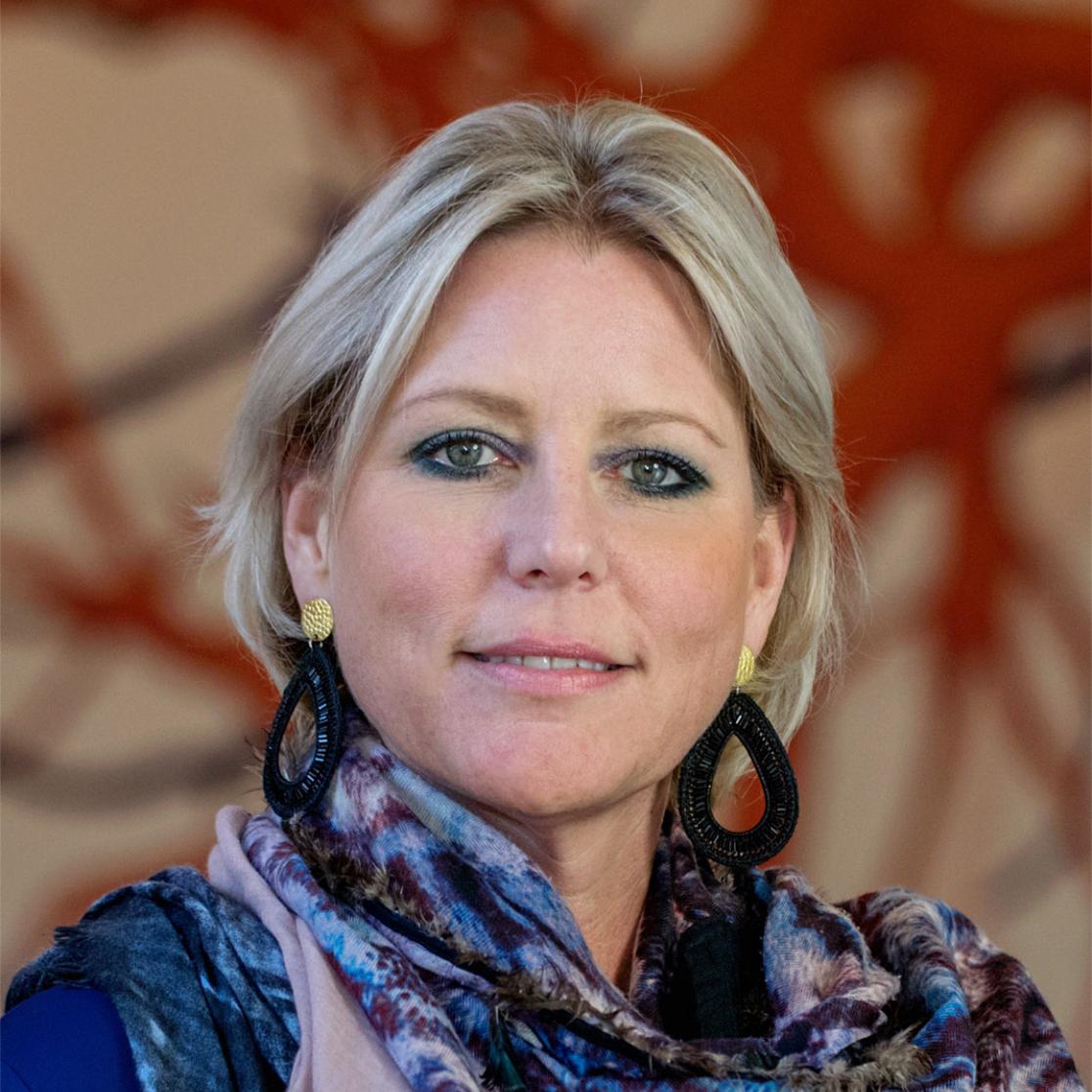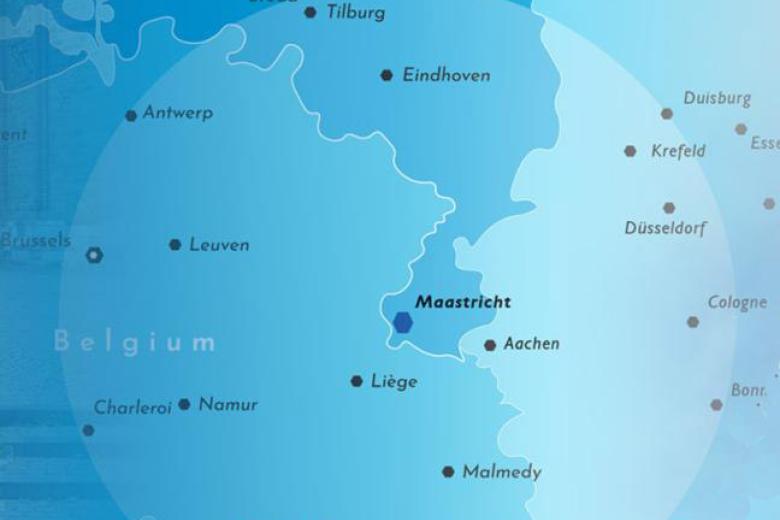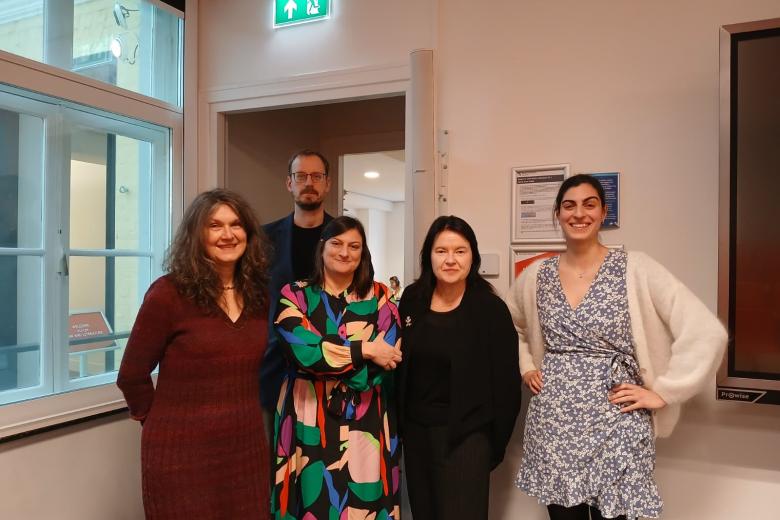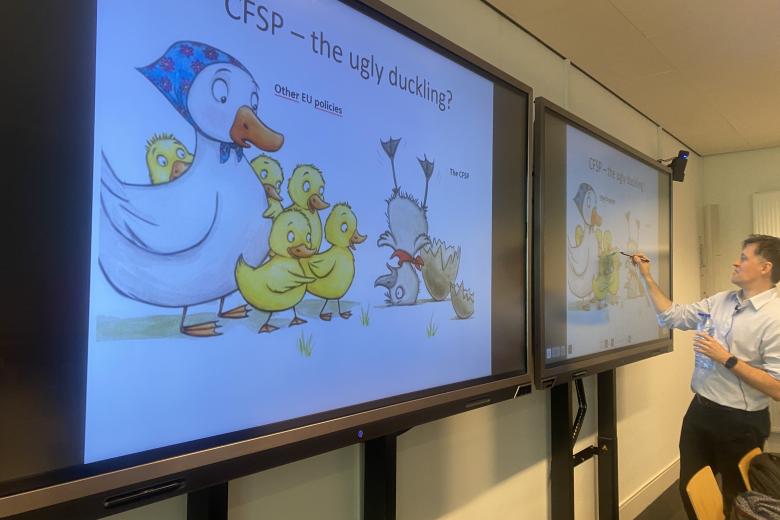ERASMUS+ - free movement of ideas and skills
Under ERASMUS+, the European Commission's mobility programme for education and training, UM sends and receives more students than any other Dutch university. President Rianne Letschert on her own ERASMUS experience, the benefits of leaving your comfort zone, and being inspired by different perspectives.
“It was an amazing experience! I am also recommending it to my children,” says UM president Rianne Letschert about her own ERASMUS student exchange. “Leaving your comfort zone opens your eyes to different academic approaches, different ways of living, and different perspectives.” She is convinced of the added value of study exchanges and UM is leading the way, with 1,800 incoming and outgoing students within Europe per year, more than any other university in the Netherlands.
As a young student of international law, Letschert spent a memorable year at the Université Montpellier. “The French study system is more traditional, with much steeper hierarchies between professors and students. I learnt a lot about law, but also about how you can approach things in very different ways.” The ERASMUS system itself was also less streamlined in those days. “I took third-year courses in French law but obviously didn’t have the same basis as those around me – I studied very hard to keep up.”
Different subject, language, system, people
Admittedly, Letschert had done her homework in advance. “I moved there earlier to follow an intensive French course. It was necessary too – my French was good enough for a bakery, but not for a court of law… You have to work harder of course, but it’s incredibly rewarding. I remember going back after the Christmas holidays: I was in a café with some French friends and it was as if a switch in my head flicked and I understood everything all of a sudden without focussing so much.”
While English-language teaching is the bedrock of UM’s ability to welcome researchers and scholars from all over the world, Letschert thinks we should offer even more possibilities for accessible language learning , from Dutch to French and German, to Japanese or Chinese. The UM language centre already offers free Social Dutch courses for exchange students. “Language was certainly a criterion for me. I was already confident in my English, so I was either going to take my French or Spanish to the next level. Doing it in a language other than English was definitely added value.”

Abroad squared
UM is already the most international university in the Netherlands. Granted, being a European university with strong roots in the Euregion, many of those internationals are Belgians or Germans choosing the closest, best or academically most suitable university within 2 hours of their parental home. Still, UM educates more than 20.000 students from over a 100 countries. You might wonder why, already studying abroad, they would spend a semester ‘even more abroad’.
“It makes a lot of sense to me. You get to expand your horizon further, experience a culture that’s different from your own and the one you’re used to here,” explains Letschert. “Judging from the numbers and the conversations I’ve had, our students understand that very well. Also, our students from abroad have already made the more difficult choice in moving to Maastricht, so they tend to be more driven, enterprising and adventurous.”
Europe for all
An even more pragmatic argument is the bigger array of subjects and expertises students can access. That is also the rationale behind the YUFE (Young Universities for the Future of Europe), an alliance coordinated by UM, which enables students to personalise their own learning journeys across an alliance of ten European universities. This is not just a gimmick; ten universities simply offer a greater diversity of courses than one. YUFE allows students to take up single courses, or even pursue a full semester exchange at a YUFE partner university. “The government asks us to build out life-long learning across society to upskill the workforce. It’s more efficient to get expertise from across Europe, so we hope YUFE can be an incubator for transnational learning and skills acquisition.”
Letschert also talked about this approach with Vice-President of the European Commission and Commissioner for Social Rights and Skills, Quality Jobs and Preparedness Roxana Mînzatu during UM’s Opening of the Academic Year. “She loved the concept and thinks that student mobility should be a right for everyone in Europe, and should also be extended to tradespeople.” Letschert very much agrees and compliments UM’s School of Business and Economics for making an ERASMUS semester a mandatory part of the curriculum. “It’s possible because UM already has such an extensive network that every student can go on an exchange if they want.” UM has more than 400 partnership agreements; in the recently launched YUFE bachelor’s programme in Urban Sustainability Studies, developed with all 10 partner universities, mobility is also a mandatory part of the curriculum.
UM’s president Letschert is also a great proponent of the ERASMUS+ staff mobility programme, which UM actively incentivises for support staff with a focus on job-shadowing and early career researchers with a focus on research collaboration. “With all the possibilities for students and researchers, it’s great that we also empower the support staff who make all this possible to go out and gather experiences and see how their field of expertise is interpreted elsewhere. We were a bit nervous when we decided on the pilot programme but it was a great success. There was a lot of interest and the reports from those returning were very positive.” During the pilot phase, more than 50 support staff members have gone abroad with a fully funded mobility. By next year, all UM faculties and service centres will have participated.
An influx of ideas and best practices
Exchanges not only benefit the outgoing party; Letschert sees clear added benefits for UM as an institution. “Obviously it chimes with our international position that we are open to all of those students who want to experience our education and enjoy our wonderful city. At the same time, they bring their own perspectives, which enriches our international classroom.” Sustainable reputation building is a side-effect. “Seeing a paid ad is very different from talking to someone getting nostalgic about the city, the people, Problem-Based Learning and so on.”
Letschert herself also stays humble and open to inspiration from abroad. “I don’t travel much for work anymore, but I was at a congress in Hong Kong recently and it made me realise what I’m missing. Seeing how some universities organise research support was really inspiring. I was texting Pamela [Habibović, UM’s rector] during the presentations and we were already developing new ideas. We all have to navigate in the best way possible how we do things here – and that’s fine, but it can preclude us from innovating. There’s a real benefit to gathering best practices from around the world.”
Text: Florian Raith
Also read
-
DigiMach places Meuse-Rhine Euroregion at the heart of industrial digitalisation
DigiMach (Digital Machining) is a new cross-border project uniting Belgium, Germany, and the Netherlands around a common goal: accelerating the digitalisation of the machining industry in the Meuse-Rhine Euroregion.
-
Globalisation & Law Network seminar with Áine Ryall
On 24 November 2025, the Globalisation & Law Network, together with the Institute for Globalisation and International Regulation (IGIR) held the seminar with Professor Áine Ryall.
-
Guest Lecture: Lóránt Havas explores current challenges in the EU’s CFSP
Lóránt Havas delivered a guest lecture on the EU’s evolving CFSP, discussing key legal developments, institutional challenges, and new defence instruments.